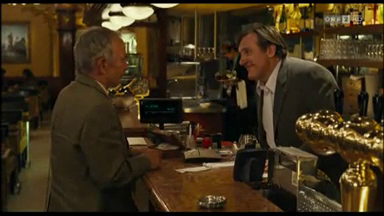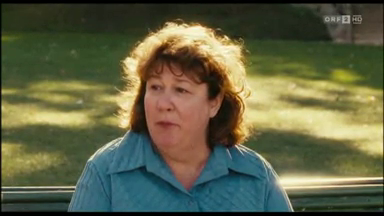A Serbian film! Not so often we see films from that country. But at least my library has some. This caught my attention, because it was Serbia's submission for the 83rd Academy Award.
The plot starts in 1914, shortly before the outbreak of World War I. Filip (Nebojša Dugalić), a school teacher, has married Lea (Iva Krajnc), a woman from Styria. While Filip is a Serb, the identity of his wife is somewhat complicated. She is from Styria, a Slovenian, and a citizen of Serbia. But as that territory is occupied by Austria, she is also seen as a potential spy and enemy. As Filip is drafted for the army and nobody in the village can protect her, he asks the caretaker of the school, Azem (Miki Manojlović), to look after his wife. Azem is Albanian, he gives the teacher the Besa, the solemn promise, to look after his wife.
In the beginning it seems that Azem takes his promise too literal. Lea feels like in captivity. But slowly they develop trust and also some sort of affection for each other. Besa, but even more his etiquette forbid Azem to touch Lea. At some point there is a tender moment moment between them - but no touching. This is a very delicate scene, maybe even the best in the film.
There is not happening much in this film. An officer from the Serbian army moves in and Azem gets a chance to show how important besa is for him.In the end the husband returns and they move on.
This is an intersting study about two outsiders suporting each other in a hostile environment. It is also a nostalgic look back at a time when wasn't drunken with genocidal fury.
8(10
The plot starts in 1914, shortly before the outbreak of World War I. Filip (Nebojša Dugalić), a school teacher, has married Lea (Iva Krajnc), a woman from Styria. While Filip is a Serb, the identity of his wife is somewhat complicated. She is from Styria, a Slovenian, and a citizen of Serbia. But as that territory is occupied by Austria, she is also seen as a potential spy and enemy. As Filip is drafted for the army and nobody in the village can protect her, he asks the caretaker of the school, Azem (Miki Manojlović), to look after his wife. Azem is Albanian, he gives the teacher the Besa, the solemn promise, to look after his wife.
In the beginning it seems that Azem takes his promise too literal. Lea feels like in captivity. But slowly they develop trust and also some sort of affection for each other. Besa, but even more his etiquette forbid Azem to touch Lea. At some point there is a tender moment moment between them - but no touching. This is a very delicate scene, maybe even the best in the film.
There is not happening much in this film. An officer from the Serbian army moves in and Azem gets a chance to show how important besa is for him.In the end the husband returns and they move on.
This is an intersting study about two outsiders suporting each other in a hostile environment. It is also a nostalgic look back at a time when wasn't drunken with genocidal fury.
8(10






















































